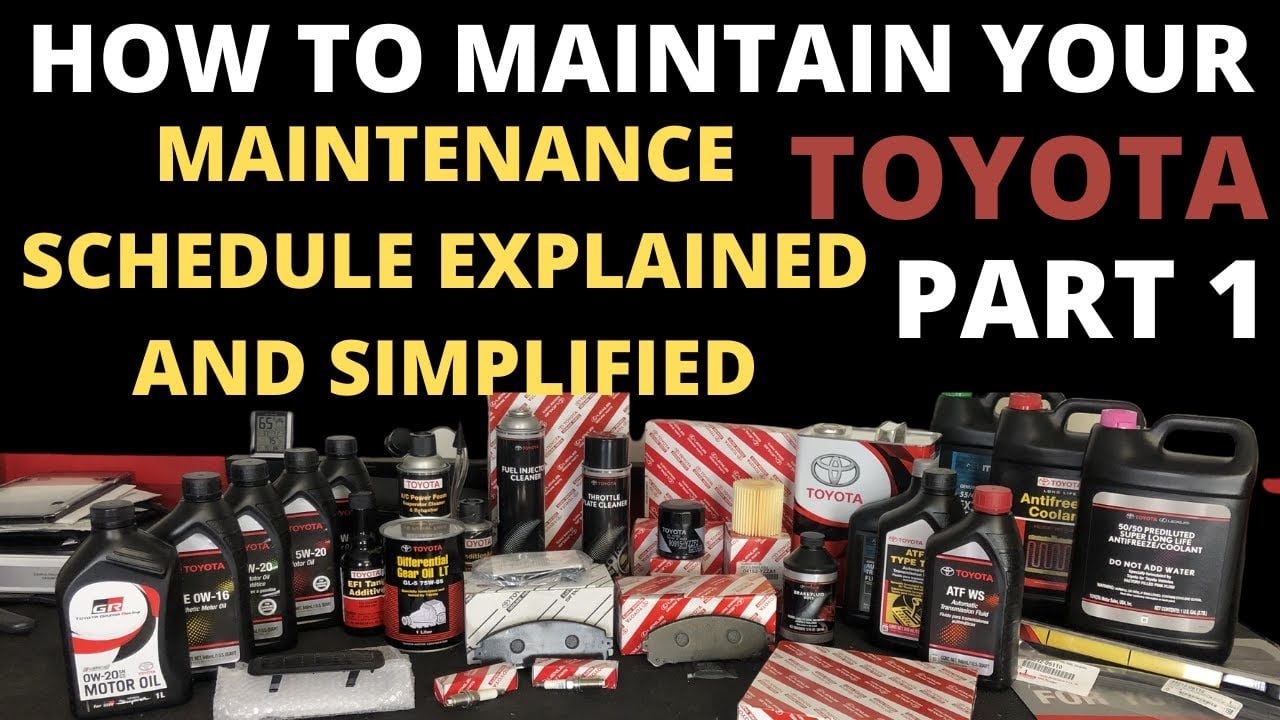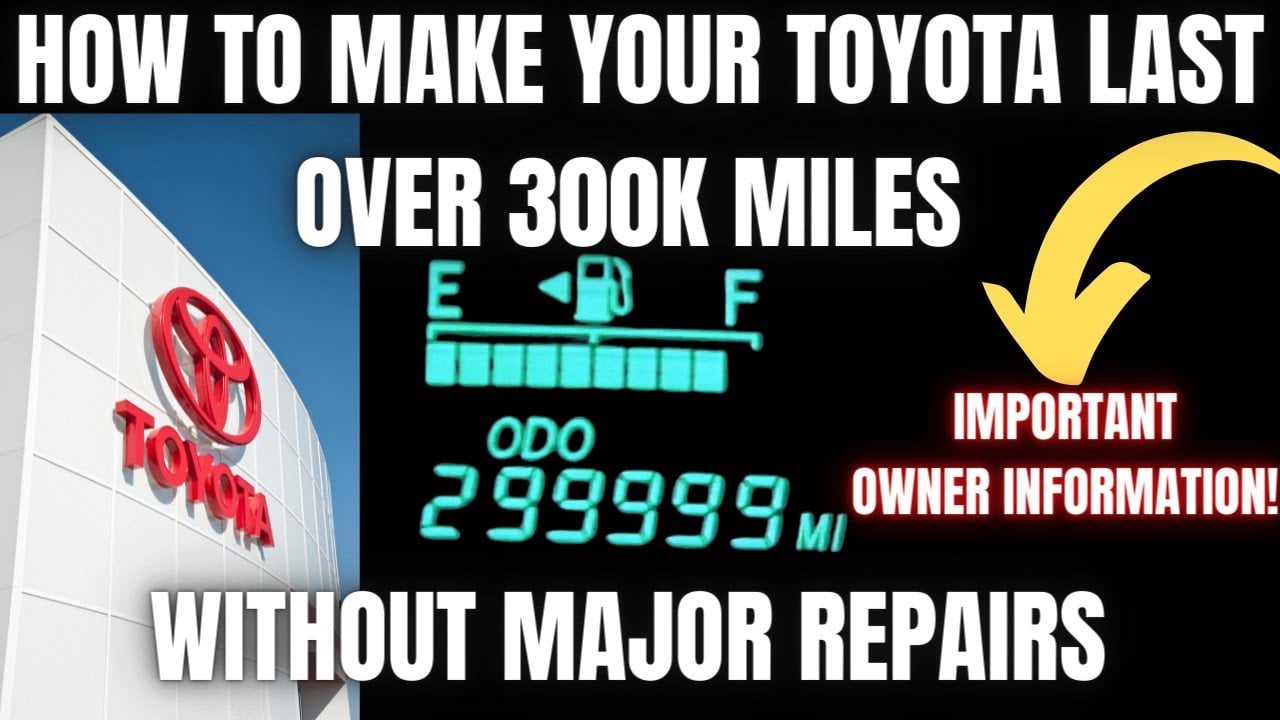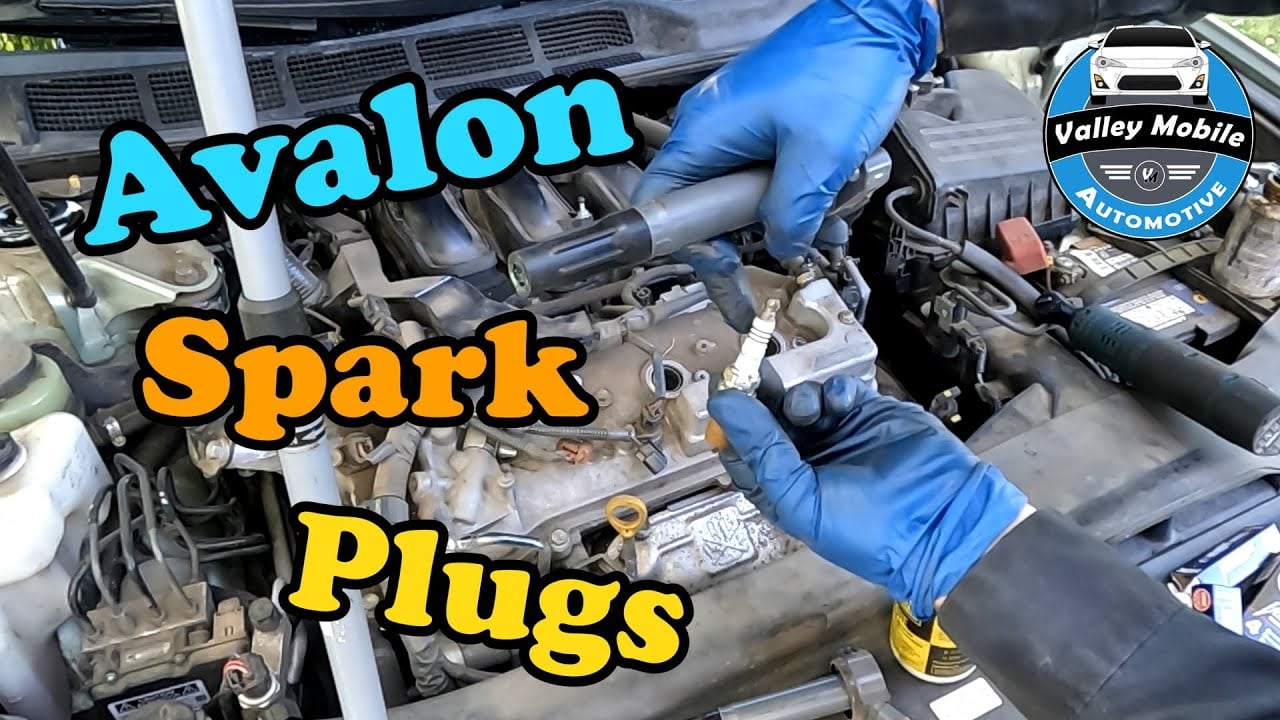To keep your Toyota Avalon running smoothly, you'll want to handle regular maintenance. Change the oil as per Toyota's intervals to keep the engine lubricated and efficient. Rotate the tires every 5,000 to 8,000 miles to guarantee even wear. Regularly check and replace fluids like coolant and transmission fluid. Don't overlook the brakes—inspect and replace pads every 30,000-70,000 miles. Swap out spark plugs every 15,000 to 30,000 miles for best performance. Finally, replace your battery every 3-5 years and keep it clean. You'll discover more ways to extend your car's lifespan with these practices.
Key Takeaways
- Perform regular oil changes as per Toyota's guidelines to ensure engine lubrication, cooling, and cleanliness.
- Inspect and rotate tires every 5,000 to 8,000 miles to promote even tread wear and extend tire life.
- Check and replace essential fluids like engine oil, coolant, and transmission fluid regularly to prevent breakdowns.
- Maintain brakes by inspecting and replacing brake pads every 30,000-70,000 miles and checking brake fluid levels.
- Replace the battery every 3-5 years and clean terminals to prevent corrosion and ensure reliable performance.
Regular Oil Changes
Regular oil changes are crucial for maintaining your Toyota Avalon's engine in top shape. Toyota recommends changing the oil every 10,000 miles if you're using synthetic oil, or every 5,000 miles with conventional oil. By sticking to this schedule, you guarantee that your engine remains lubricated, cool, and clean, which translates to peak performance and longevity.
Neglecting this basic maintenance task can lead to serious issues like engine damage, decreased fuel efficiency, and even potential warranty problems. You don't want to find yourself in a situation where a simple oil change could have prevented costly repairs. Taking control of your vehicle's maintenance means adhering to these intervals.
Consult your owner's manual for the specific oil change intervals and the type of oil recommended for your Avalon. This will provide you with the most accurate information tailored to your vehicle. When you follow the manufacturer's guidelines, you're ensuring long-term engine health and reliability.
Inspect and Rotate Tires

In order to keep your Toyota Avalon running smoothly, you must inspect and rotate the tires regularly. Regular tire inspections help you catch wear and tear early, guaranteeing safety and peak performance. Look for uneven tread wear, cuts, or punctures. When you spot these issues early, you can address them before they evolve into bigger, costlier problems.
Rotate your tires every 5,000 to 8,000 miles. This promotes even tread wear, extending the life of your tires and saving you money in the long run. Even tread wear also improves fuel efficiency, so you're not wasting money at the pump. Properly maintained tires enhance your vehicle's handling, giving you a more controlled and enjoyable driving experience.
Don't forget to maintain correct tire pressure. Properly inflated tires help prevent blowouts, which can be dangerous and lead to expensive repairs. They also ensure a smoother ride, adding to your overall driving comfort. Take control of your Toyota Avalon's maintenance by addressing tire issues promptly. This proactive approach not only keeps you safe but also ensures your Avalon delivers the smooth, reliable performance you expect.
Check and Replace Fluids
Keeping an eye on and replacing your Toyota Avalon's fluids is crucial for maintaining peak performance and longevity. Regularly checking and replacing engine oil, coolant, transmission fluid, and other essential fluids can prevent overheating, component wear, and potential breakdowns. Here's how you can take control of your Avalon's fluid maintenance:
- Engine Oil: Check the oil level and quality every month. Replace it according to Toyota's recommended intervals to keep your engine running smoothly and efficiently.
- Coolant: Inspect the coolant level and condition regularly. Proper coolant maintenance prevents overheating and keeps the engine at the right operating temperature.
- Transmission Fluid: Ensure the transmission fluid is at the correct level and is free from contaminants. Clean, properly maintained transmission fluid ensures smooth gear shifts and extends the lifespan of the transmission system.
Maintain Brakes and Pads
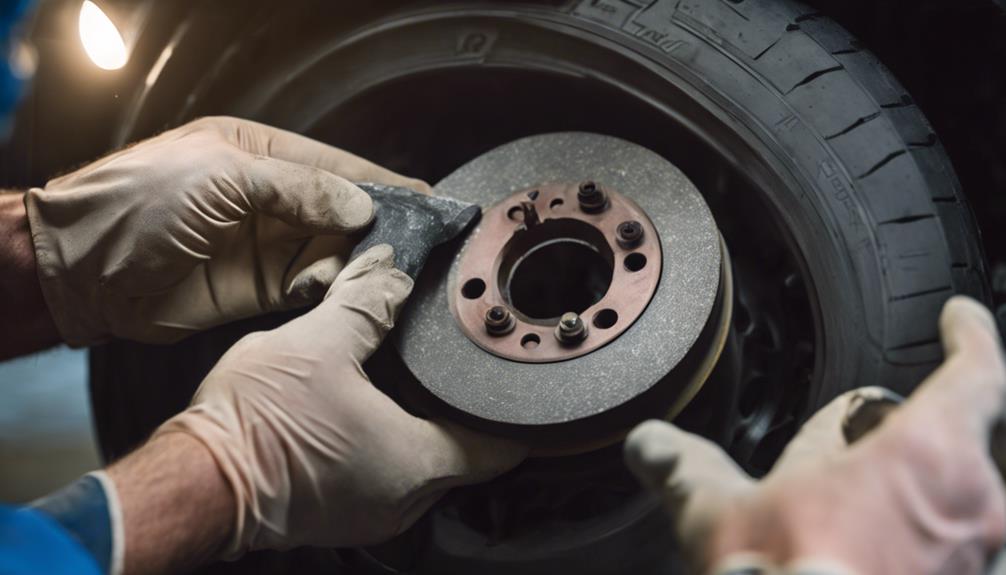
You should inspect and replace your brake pads every 30,000-70,000 miles to guarantee excellent braking performance. This routine check helps you stay ahead of potential issues and maintains the safety of your Toyota Avalon on the road. Neglecting your brake pads can lead to more expensive repairs down the line, so it's important to stay proactive.
In addition to the brake pads, regularly check your brake fluid levels and quality. Low or contaminated brake fluid can severely impact your braking function, leading to dangerous situations. Keep your brake fluid at the recommended level and ensure it's clean to maintain peak performance.
Don't forget to monitor your brake rotors for wear and damage. Worn or damaged rotors can compromise your braking efficiency and pose safety hazards. If you notice any irregularities, replace the rotors promptly to avoid further complications.
Properly maintaining your brakes and pads not only ensures safe driving conditions but also helps you avoid costly repairs. For specific maintenance intervals and guidelines, always consult your owner's manual. Staying informed and diligent with your brake system care puts you in control and keeps your Toyota Avalon running smoothly.
Replace Spark Plugs
When you replace your Toyota Avalon's spark plugs, selecting quality options like OEM or NGK can enhance your car's performance. Be certain to follow proper installation techniques to avoid issues such as misfires or rough idling. Always consult your owner's manual or a professional to make sure you're using the correct spark plugs for your Avalon.
Choosing Quality Spark Plugs
In order to maintain your Toyota Avalon's peak performance, it is important to replace the spark plugs every 15,000 to 30,000 miles. Choosing quality spark plugs is vital for guaranteeing your engine runs smoothly and efficiently. Here are three key points to take into account:
- Opt for OEM or NGK spark plugs: These options are designed specifically for your Toyota Avalon, ensuring compatibility and reliability. OEM (Original Equipment Manufacturer) spark plugs are identical to the ones your vehicle was originally equipped with, while NGK is a trusted brand known for quality and performance.
- Boost fuel efficiency and engine operation: Upgrading to high-quality spark plugs can enhance your vehicle's fuel efficiency and overall engine performance. This means smoother starts, better acceleration, and reduced emissions, all contributing to a more enjoyable driving experience.
- Follow the manufacturer's recommendations: Adhering to the recommended replacement intervals helps prevent engine misfires and potential damage. This proactive approach ensures your Toyota Avalon remains in top condition, avoiding costly repairs down the line.
Proper Installation Techniques
To guarantee a smooth and efficient installation, start by gathering all necessary tools and high-quality spark plugs. Opt for OEM or NGK spark plugs to make sure they are compatible with your Toyota Avalon. Before installing, check that the spark plugs are properly gapped according to the manufacturer's specifications for best performance.
Next, apply a small amount of anti-seize compound on the spark plug threads. This step will help prevent seizing during future replacements, making your maintenance process smoother down the line. Carefully thread the spark plugs into the engine by hand to avoid cross-threading, which can damage the engine block.
Once hand-tightened, use a torque wrench to secure the spark plugs to the correct torque specification. Over-tightening can strip the threads, while under-tightening may lead to poor engine performance or even damage. Follow the recommended replacement interval for spark plugs to maintain your Toyota Avalon's performance and efficiency.
Monitor Battery Health
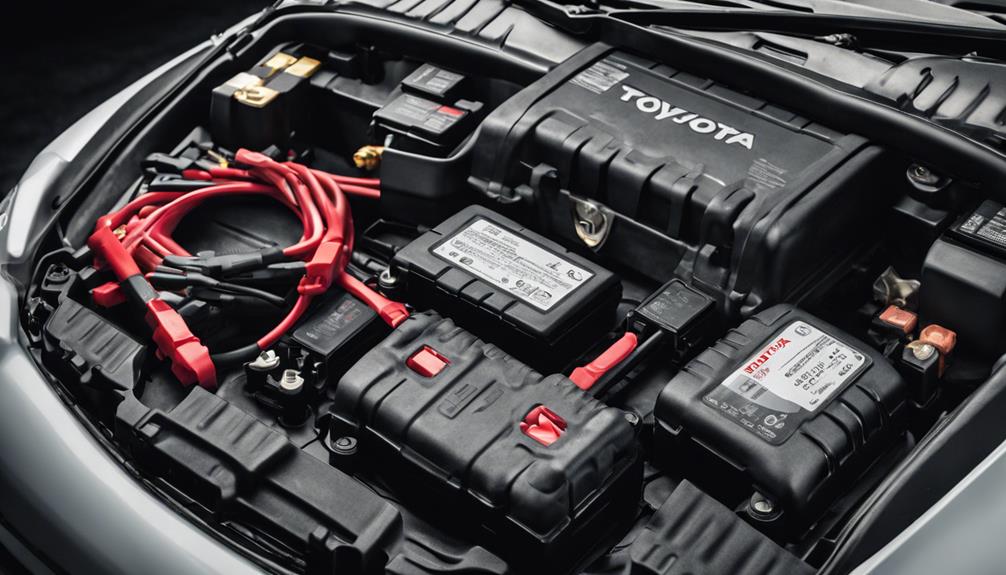
Monitoring your Toyota Avalon's battery health guarantees dependable starts and prevents unexpected breakdowns. To keep your battery in top condition, you should take proactive steps.
First, check the battery voltage regularly to make sure it stays within the recommended range of 12.6 to 12.8 volts. This simple check can alert you to potential issues before they escalate. Use a multimeter for an accurate reading. If the voltage drops below this range, it might be time to contemplate a new battery.
Second, test the battery's cold cranking amps (CCA) to verify its ability to start the engine in cold temperatures. This is important, especially if you live in an area with harsh winters. A battery that struggles during a CCA test won't be reliable when you need it most.
Third, consider replacing the battery every 3-5 years. Older batteries often struggle to hold a charge, leading to unreliable performance.
Here are three key maintenance tasks:
- Clean the battery terminals and cables to prevent corrosion and ensure a good electrical connection.
- Utilize a battery maintainer or trickle charger if your vehicle isn't driven frequently.
- Regularly inspect and test your battery to catch potential issues early.
Frequently Asked Questions
How Often Should the Timing Belt Be Replaced on a Toyota Avalon?
Imagine your engine purring like a well-tuned orchestra—replace the timing belt on your Toyota Avalon every 60,000 to 100,000 miles to keep it that way. Don't wait until it's too late; consult your owner's manual or a certified technician to nail down the specifics. Timely replacements prevent costly repairs, maintain engine performance, and guarantee your ride's smooth symphony continues uninterrupted. Take control and keep your Avalon in peak condition!
What Are Common Signs of Transmission Issues in a Toyota Avalon?
You should be vigilant for common signs of transmission issues in your Toyota Avalon. Look out for delayed or rough shifting, strange noises like whining or grinding, and a hesitation or jerking sensation when accelerating. Also, check for transmission fluid leaks or a burning smell. If the Check Engine light comes on alongside these symptoms, don't wait—get your Avalon inspected by a professional immediately.
How Can I Improve the Fuel Efficiency of My Toyota Avalon?
Did you know proper tire inflation can improve fuel efficiency by up to 3%? To boost your Toyota Avalon's fuel efficiency, keep your tires properly inflated and aligned. Use the recommended motor oil grade, regularly replace air filters and spark plugs, and avoid aggressive driving. Stick to scheduled maintenance like oil changes and tune-ups. By following these steps, you'll control your vehicle's performance and save on fuel costs.
When Should the Air Filter Be Replaced in a Toyota Avalon?
You should replace your Toyota Avalon's air filter every 15,000 to 30,000 miles, depending on your driving conditions. A clean air filter promotes peak engine performance and fuel efficiency. Don't wait until it's clogged or dirty, as it can harm the engine. Using genuine Toyota air filters guarantees the best fit and filtration. Stick to the manufacturer's schedule to maintain your vehicle's longevity and efficiency.
What Is the Recommended Interval for Replacing the Cabin Air Filter?
Did you know that over 70% of drivers neglect their cabin air filter replacement? You should replace the cabin air filter in your Toyota Avalon every 15,000 to 30,000 miles. By doing so, you'll guarantee excellent air quality and HVAC efficiency. Don't let dust and pollen compromise your comfort and health. Following this maintenance interval gives you control over your vehicle's interior environment and keeps it smelling fresh.


